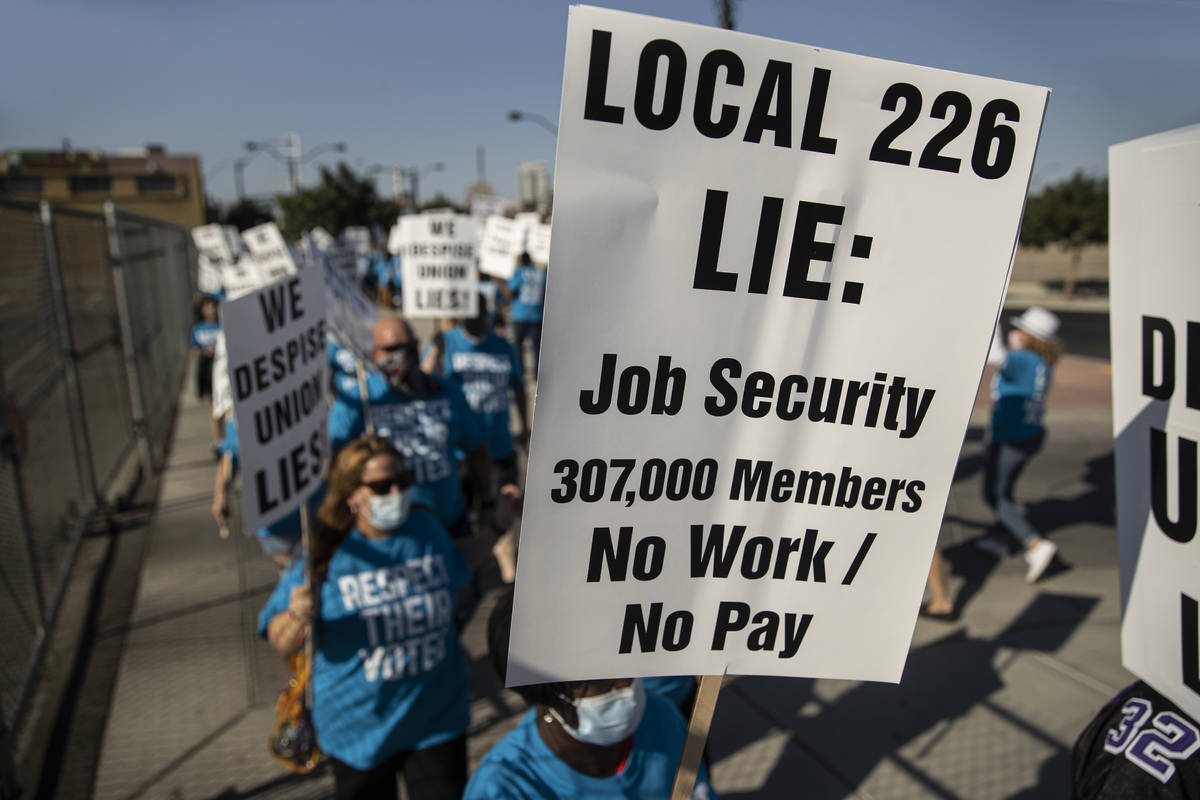EDITORIAL: Workers’ bargaining rights must go both ways

The protesters have become the protested.
On Sunday, a group of casino employees gathered outside the headquarters of the Culinary Local 226. That may not seem surprising. After all, the union has long organized and led rallies against various casino companies. But these demonstrators were protesting the Culinary union itself.
“We despise union lies,” the protesters said.
The crowd consisted of employees from Palace Station and Boulder Station. A few years ago, the Culinary succeeded in unionizing both properties. Last year, however, majorities at each location signed petitions rejecting the union. Instead of listening to the employees it claims to want to represent, the Culinary is fighting the decertification.
“We’re out here to send a message,” Hernan Andrade, director of internal maintenance for Red Rock Resorts, told the Review-Journal on Sunday. “A message to the union to just leave us alone.”
But that would cost the Culinary union untold amounts of dues. It isn’t letting those dues go without a fight.
The dispute has gone before the National Labor Relations Board. In April, NLRB Regional Director Cornele Overstreet put out a complaint against the company, finding fault on a number of fronts. For instance, he found that the company “provided more than ministerial assistance” to the decertification effort, accusing it of helping circulate petitions to leave the union.
That’s ironic. The Culinary union spent years harassing Stations Casinos, the Fertitta family and even the UFC in an effort to unionize Station employees. But the company passing around petitions, if accurate, is considered a bridge too far. A trial before a NLRB judge begins next week.
Regardless of how the trial goes, there’s a larger issue. Creating a union too often seems like walking into Hotel California: Workers can check out, but they never get to leave. Once workers vote to organize and a contract is signed, it’s extremely hard to end unionization.
Petitions for decertification can’t be filed during the vast majority of the first three years of a collectively bargained contract, per the Labor Relations Institute Inc. Employees have only a 30-day window to submit signatures requesting a decertification election. If a contract is longer than three years, employees can file decertification paperwork after the first three years of the contract. The company isn’t allowed to help either.
This skewed process benefits union officials, not workers.
Employees have to join a union. But they also have the right to leave a union. When they opt for the latter, union officials shouldn’t stand in their way.